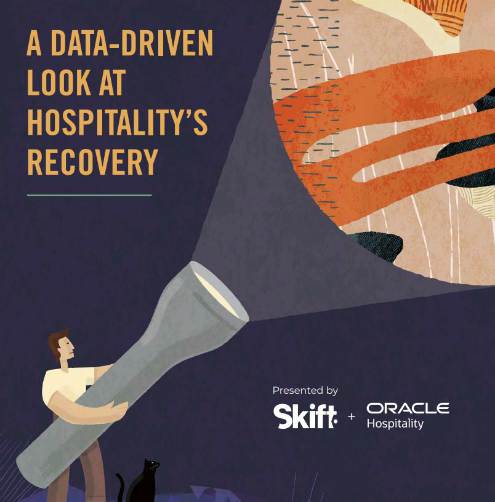Following a long stretch of stay-at-home orders, consumers are eager to get out and travel according to a new research study from Oracle and Skift. Just over half (51%) of people surveyed in both North and Latin America plan to book trips in the next six months, while 38% of those in Asia-Pacific and Europe are planning get-aways. People, however, are opting to stay closer to home with driving distance (47%) or domestic trips (44%) being favored. With so much uncertainty ahead, consumers are also demanding flexible cancellation and refund policies (76%) and are more open to considering hotels offering discounted rates (65%).
Consumers’ willingness to travel also comes with heavy caveats for hotels in terms of advancements in cleaning and technology. In response, 70% of hotels already are or are planning to adopt contactless technology for check-in, food ordering, concierge services and more. Ninety percent have or are planning to also increase cleaning and disinfecting frequency and training for staff on these procedures and safer guest interactions (89%).
“As the hospitality industry turns a corner on the road to recovery, technology will be critical to protecting travelers and workers alike,” said Alex Alt, senior vice president and general manager, Oracle Hospitality. “Safety rightly remains consumers’ top priority when they consider traveling, and the hospitality industry is doubling down on technology to facilitate social distancing and reduce face to face interaction for guests’ protection.”
The global study, A Data-Driven Look at Hospitality’s Recovery, explored 4,600 consumers and 1,800 hotel executives’ attitudes and outlook on travel, including changes to the guest and employee experience, booking policies and distribution, and the industry’s recovery outlook.

Shifting Demand, Changing Operations
With international border restriction and flying concerns, hotels will be welcoming new types of travelers, making the stakes high to leave a positive impression that will lead to repeat business and word-of-mouth recommendations. The survey found that:
- Border closures reshaping guest profile: More than 30% of executives surveyed said they expected to see a few more or significantly more domestic travelers, and over 60% were expecting fewer or significantly fewer international travelers. This may offer a silver lining for North American hoteliers, 57% of whom agreed that the greatest majority of their guests were domestic travelers before the health crisis, signaling a more limited impact on demand.
- New policies court travelers: Hotels are moving swiftly to abide by consumer demands with more than 80% of executives reporting that they were considering or have already made changes to allow for more flexible cancellation and refund policies.
- Safety will be the new gold standard: Unsurprisingly, space and cleanliness will remain critical, with 84% of travelers agreeing that ‘creating social distancing’ rules for hotel public spaces will be the most influential factor in their decision about which travel brands to choose for upcoming trips. Hotel executives appear ready to meet these expectations, with 82% either considering or already altering public spaces to enable social distancing.
Technology Paramount to a Positive Safer Guest Experience
Technology is enabling social distancing and cleanliness by reducing the need for in-person interactions and empowering hotels to deliver ‘high-touch’ service without the ‘touch.’ Specifically:
- Hotels go contactless: More than 70% of executives said they were considering or are already using contactless payment and digital messaging services, and close to 60% were considering/already using room keys activated by smartphone. Consumers concur, indicating that contactless payments (35%), digital room keys (26%) and digital messaging services (20%) were among the top three changes that would make them feel more comfortable staying in a hotel.
- Self-service tools let guests skip the front desk: Over 70% of executives agreed or strongly agreed that self-service technology will be important to assisting guests while minimizing unnecessary contact, with two thirds (67%) reporting they were considering or are already using self-service check-in procedures. A similar portion of consumers (70%) agreed or strongly agreed they’d be more willing to stay at hospitality businesses that implemented these types of services, with 23% citing self-service check-in via kiosk as a change that would increase their comfort.
- Ample amenities, less interaction: More than 60% of executive respondents reported they were considering or already making changes to expand room service options, and 50% are looking into expanding meal takeout/delivery options. One-fifth of guests ranked expanded room service options as a top factor for alleviating concerns, allowing them to avoid shared spaces such as hotel restaurants.
Methodology
The Oracle and Skift survey queried more than 1,800 hospitality executives, from a mix of businesses including hotels, short-term rental operators, cruise companies, boutique hotels and casinos, among others, to understand their opinions about an altered marketplace. Additionally, 4,600 consumers across North America, Europe, Asia-Pacific and Latin America were surveyed to understand the COVID-19’s impact on travel plans and expectations for hotel stays.





